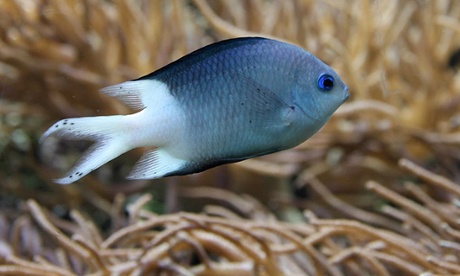For related articles and much more details, please pay a visit to OCA’s Environment and Climate Resource Center page.

Spiny damselfish Acanthochromis polyacanthus.
Photograph: Flickr/inventive commons
Increasing carbon dioxide levels in oceans adversely change the behavior of fish through generations, raising the possibility that marine species may possibly never ever fully adapt to their changed environment, research has identified.
The study, published in Nature Climate Modify, found that elevated CO2 levels impacted fish regardless of whether or not their parents had also experienced the exact same atmosphere.
Spiny damselfish had been kept in water with distinct CO2 levels for a number of months. One particular level was consistent with the world taking fast action to reduce carbon emissions, while the other was a “business as usual” situation, in which the existing trend in rising emissions would equate to a 3C warming of the oceans by the finish of the century.
The offspring of the damselfish were then also kept in these differing conditions, with researchers locating that juveniles of fish from the higher CO2 water had been no far better than their parents in adapting to the conditions.
This suggests that fish will take at least many generations to cope with the changed atmosphere, with no guarantee they will ever do so, which means a number of species could be at risk of collapsing due to climate adjust.
The investigation was carried out by the ARC center of excellence for coral reef studies, based at James Cook University in Queensland.
Prior studies by the center have identified that rising CO2 levels in the oceans directly alters neuron transmitters in fish brains, modifying their behavior. Their sense of smell is hindered, as effectively as their wariness, meaning far more are picked off by predators.
Much more than 90% of the excess CO2 in the atmosphere, mainly triggered by the burning of fossil fuels, is soaked up by the oceans.
When CO2 is dissolved in water it causes ocean acidification, which slightly lowers the pH of the water and changes its chemistry. Crustaceans can discover it challenging to form shells in highly acidic water, although corals are more prone to bleaching.
Professor Philip Munday, a co-author of the study, told Guardian Australia the analysis suggested fish would not be capable to adapt to climate adjust in the quick term.